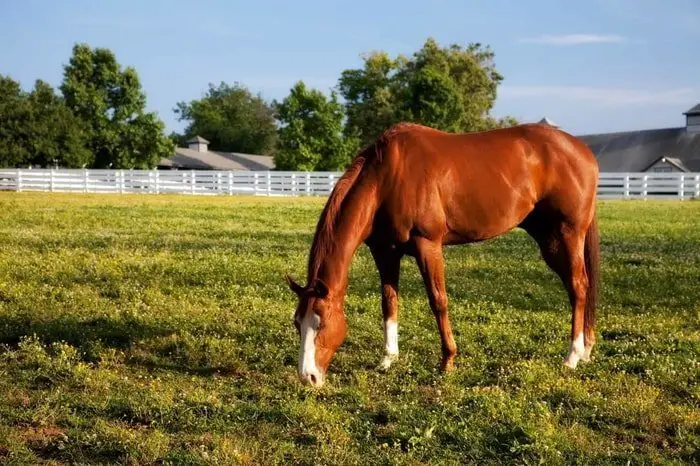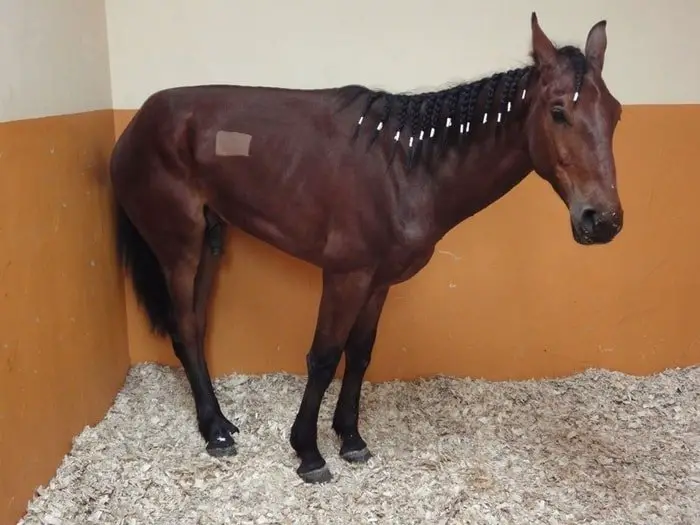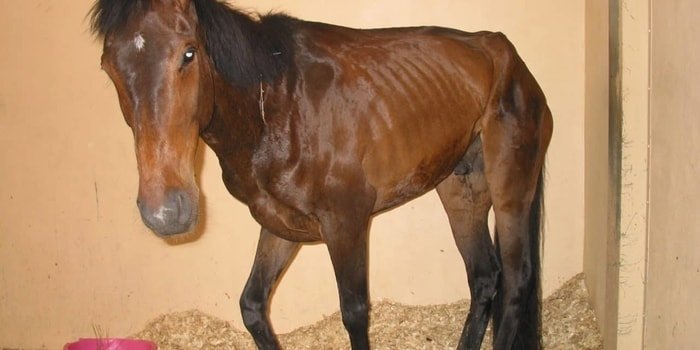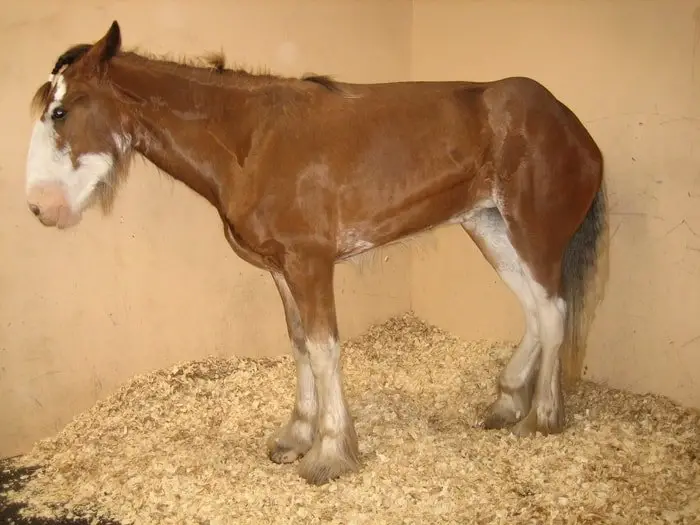Grass sickness in horses is a disease affecting all breeds of horse and non-domestic Equidae in Europe. The vast majority of the case occurs in the UK, particularly in Scotland. Younger horses are more commonly affected. The majority of cases occur in spring and early summer., with a smaller peak of incidence in the autumn; however, cases may be seen throughout the year. Another name of the disease is Equine Dysautonomia.
Causes of Grass Sickness
The causes of grass sickness in horses is elusive. At present, evidence suggests that a mycotoxin associated with the pasture is the most likely cause. Grass sickness causes can be grouped into broad categories according to clinical signs: acute, subacute, and chronic. Grass sickness is most often seen in horses permanently as pasture. Horses permanently as stable are also affected, but this is rare.

Clinical Signs of Grass Sickness
Clinically grass sickness may be acute, sub-acute, or chronic. The acute grass sickness is related to disruption of normal automatic control, specifically excessive or unopposed sympathoadrenal drive. Acute cases present with severe abdominal pain, death usually follows in 24-48 hours due to shock. Severe cases may resemble horses with severe colic. Subacute cases generally have less severe abdominal pain and may survive up to 7 days. Chronic cases are generally insidious in onset, with dysphagia and moderate abdominal pain. These animals are depressed and anorexic with severe cachexia.

Diagnosis of Grass Sickness in Horses
The antemortem diagnosis is based on the clinical examination. There are no specific changes in diagnostic blood tests. Abdominocentesis can be used to help differentiate grass sickness from other cases of acute abdominal pain. Peritoneal fluid samples from horses with acute grass sickness generally have the elevation in cell count and protein content, however, they are not serosanguinous.

Treatment of Equine Dysautonomia
There is no treatment for acute grass sickness. Once a clinical diagnosis has been made, if pain cannot be controlled using analgesics, the animal should be humanely euthanased. Treatment of grass sickness requires intensive supportive nursing care. The animal should be encouraged to eat as much as possible. Frequent gastric decompression via nasogastric intubation may be necessary. Fluid therapy may be required to treat dehydration.

Concluding Remarks on Grass Sickness
The equine dysautonomia is a fatal disease of horse and donkey. The disease is common in horses with pasture but may also found in other horses. The disease is mainly affected in the nervous and gastrointestinal system. The disease responds to treatment very less, so control measure is most important.